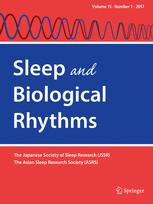The King–Devick test (K–D) is sensitive to the effects of acute sleep deprivation. It remains unclear whether the K–D is sensitive to the effects of chronic partial sleep restriction (SR). K–D performance was compared in a college student sample at baseline and after a week of SR. Subjects also completed measures of attention, processing speed, working memory, vocabulary and verbal reasoning. Subjects performed worse relative to their baselines on the K–D than previous test–retest reliability literature indicates, and worse on tests of attention, processing speed and working memory. Verbal reasoning and vocabulary were unaffected. An association between K–D performance and sleep duration during SR trended toward significance. These results provide initial support for the sensitivity of the K–D to SR.
Summary Points:
- The King-Devick Test is a reliable, easy-to-administer and cost-effective assessment of visual scanning.
- This study aimed to assess whether the K-D is sensitive to the effects of sleep restriction and whether performance on the K-D is associated with other cognitive abilities typically affected by sleep restriction and is less association with cognitive abilities that are less affected.
- Subjects took longer to complete the K-D
- Changes in performance on the K-D were associated with changes in performance on other clinical measures of abilities associated with sleep restriction, including working memory, executive functioning and sustained attention.
- There was a trend for performance on the K-D to be associated with the patient self-report measure of night-by-night sleep quantity.
- In the current study, sleep restricted subjects took a mean of 4.8s longer from K-D baseline.
- Changes in K-D performance were related to changes in performance of executive functioning.
These findings suggest that sleep restriction affects a variety of cognitive domains and that the K-D may be sensitive to one or more of these domains.

